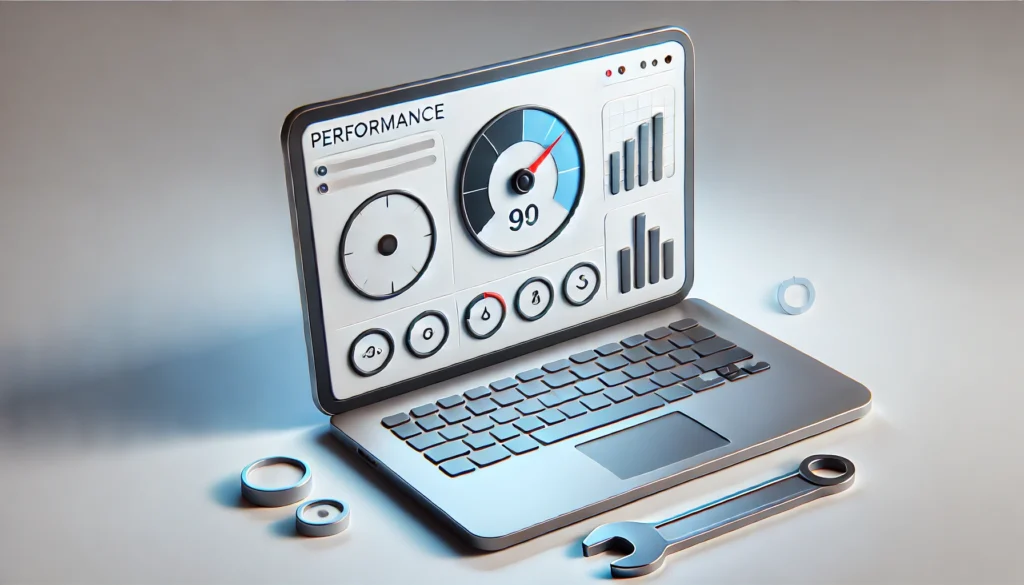In the digital era you need to optimize website speed because your website’s speed and performance are critical to user experience and SEO rankings. A slow-loading website can frustrate users, increase bounce rates, and negatively impact your search engine ranking. Therefore, optimizing your website for speed and performance isn’t just a luxury—it’s a necessity.
This article will guide you through the process of website optimization. Whether you’re looking to improve your website’s search engine optimization or incorporate flash website design, these tips will help you enhance your site’s performance and speed.
Understanding Optimize Website Speed and Its Importance

Before we jump into how to optimize your website, let’s understand why website speed is so crucial.
Why Speed Matters
The speed of your website affects everything from user satisfaction to SEO rankings and conversion rates. Google has indicated that site speed is one of the signals used by its algorithm to rank pages. Moreover, studies show that a one-second delay in page load time can lead to significant drops in page views, customer satisfaction, and conversions.
Measuring Website Speed
To optimize effectively, you first need to know your starting point. Tools like Google’s PageSpeed Insights, GTmetrix, and Pingdom can provide insights into your website’s current performance and offer recommendations for improvement.
Essential Website Optimization Techniques

Optimizing your website for speed involves a combination of techniques. Here’s what you need to focus on:
Optimize Images
Large images can significantly slow down your website. Optimizing images by compressing them and using the correct format (JPEG/Webp for photographs and PNG for graphics) without compromising on quality is vital. Tools like Adobe Photoshop, TinyPNG, or online image compressors can help with this task.
Minimize HTTP Requests
Reduce the number of elements (scripts, images, CSS files) on your page to minimize HTTP requests. Each element requires a separate HTTP request, and more requests result in longer page loading times. Combine files where possible, use CSS instead of images, and streamline elements on each page.
Use Asynchronous Loading for CSS and JavaScript
Scripts like CSS and JavaScript can block the rendering of your webpage until they are fully loaded. To prevent this, use asynchronous loading so that scripts can load simultaneously, speeding up your website.
Leverage Browser Caching
When you leverage browser caching, you’re telling the browser to store certain files for a set period. This way, returning visitors won’t have to load your entire website from scratch, which can significantly improve speed.
Implement a Content Delivery Network (CDN)
A CDN is a network of servers distributed across various locations to deliver content more efficiently to users based on their geographic location. By using a CDN, you can ensure faster delivery of content by serving it from the closest server to the user.
Optimize CSS and JavaScript
Minifying and combining CSS and JavaScript files can reduce their size and the number of files that need to be loaded. Use tools like CSSNano and UglifyJS for minification.
Prioritize Above-the-Fold Content (Lazy Loading)
Implement lazy loading, which prioritizes the content that’s visible to the user upon page load (above the fold) and delays the loading of other resources (below the fold). This can speed up the perceived load time for users.
Advanced Website Speed Optimization Strategies

Once you’ve covered the basics, consider these advanced strategies:
Optimize Your Web Hosting
Your choice of web hosting significantly affects your website’s speed. Shared hosting might be economical but can lead to slower performance. Upgrading to a dedicated or cloud-based server can improve speed and overall performance.
Enable Compression
Enable compression on your web server to reduce the size of your CSS, HTML, and JavaScript files. Gzip is a popular method for compression and can greatly enhance the loading time of your website.
Minimize Time to First Byte (TTFB)
Time to First Byte is the time it takes for a user’s browser to receive the first byte of data from your server. Optimizing server response time can improve your TTFB. This can involve upgrading your web hosting, optimizing your web server’s software, and implementing server-side caching.
Optimize Database Queries
For websites with dynamic content, optimizing database queries is crucial. Use indexing, avoid unnecessary calls, and periodically clean your database to ensure efficient operation.
Use HTTP/2
HTTP/2 offers many benefits over HTTP/1.1, including reduced latency and improved loading times. If your server supports HTTP/2, make sure to enable it for performance gains.
Website Optimization for Specific Platforms

NC Website Search Engine Optimization Wilmington
For businesses in Wilmington, NC, focusing on local SEO alongside website optimization can drive significant traffic. Ensure that your website is listed on local directories and that your content includes region-specific keywords.
Flash Website Design and Search Engine Optimization
While flash websites can be visually appealing, they pose challenges for search engine optimization. Flash content is not easily indexed by search engines, which can hurt your SEO. Consider alternatives such as HTML5 or ensure that critical content is also available in a format that search engines can read.
Monitoring and Maintaining Website Performance

Consistent monitoring is key to maintaining the speed and performance of your website. Regularly check your site’s speed and make adjustments as needed. Also, stay updated with the latest web development practices and technologies that can further enhance your site’s performance.
Conclusion
Website speed and performance are not one-time tasks but ongoing processes that require attention and maintenance. By applying the techniques and strategies outlined in this article, you can optimize your website for speed and performance or you can consult a web development agency, ensuring a positive user experience and better SEO rankings
Remember that website optimization is an investment in your online presence. Take the necessary steps to make your website faster and more efficient, and you’ll reap the benefits in user engagement, conversions, and search engine visibility.
Start implementing these optimization techniques today and watch as your website performance soars to new heights.






